
Six business benefits of setting science-based targets
Jul 9th 2018
Science-based targets are undeniably good for the planet.
By assisting companies – some of the world’s largest emitters – to align their strategies with the goals of the Paris Agreement, science-based targets help accelerate the transition to a low carbon economy and avoid the worst effects of climate change.
But a new survey* of SBTi companies confirms that science-based targets are good for business, too.
Here are six benefits a company can expect to see from setting a science-based target:
Brand reputation:
As consumers become increasingly aware of the effects their choices have on the environment, and ethical consumption continues to grow as a hot topic, a brand’s reputation for sustainability is of paramount importance.
Indeed, 79% of corporate executives surveyed found a strengthened brand reputation to be one of the most significant business benefits for their company from committing to the Science Based Targets initiative.
Companies with science-based targets are attesting to that. For multinational technology company Dell, setting a science-based target offers a way to deliver the level of corporate responsibility their customers expect of them. Electricity operator EDP, meanwhile, says setting a science-based target shows ‘robustness, confidence and credibility’.
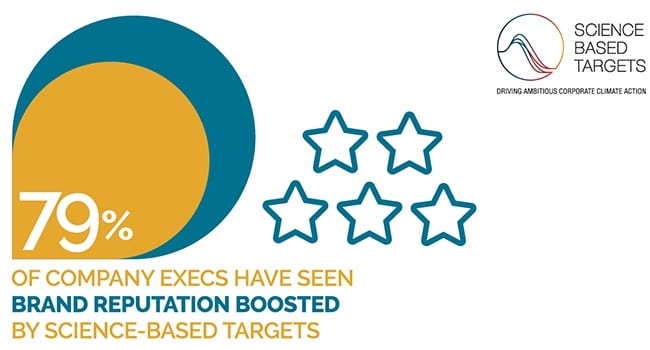
Investor confidence:
It’s not only customers that use sustainability as a benchmark of business credibility. Investors are increasingly taking interest in businesses’ environmental policies, as they look to shore up their investments for the future. Indeed, some 52% of execs say their science-based target commitment has boosted investor confidence in their business.
For multinational retailer Tesco, setting a science-based target allowed them to ‘demonstrate their seriousness in tackling climate change both to investors and other stakeholders’, proving themselves to be a forward-thinking, sustainably-minded company to a new generation of ethical investors.
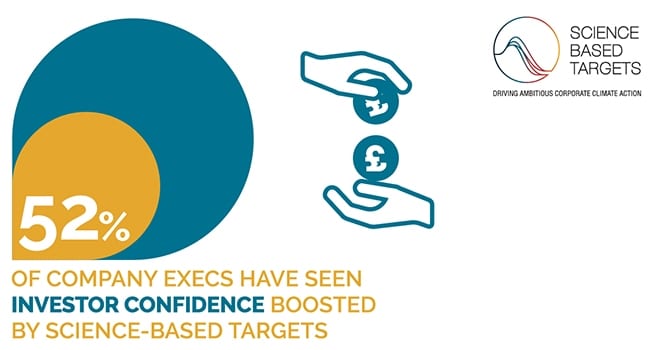
Resilience against regulation:
As national governments continue to work to implement the Paris agreement – and to ratchet up the ambition of their country-level pledges – companies can expect to see more regulation to curb emissions intensive activities.
Over a third (35%) of executives we surveyed report that setting science-based targets offered them increased resilience against upcoming regulation as more and more businesses see the benefits of future-proofing their business models and aligning themselves with the Paris Agreement early.
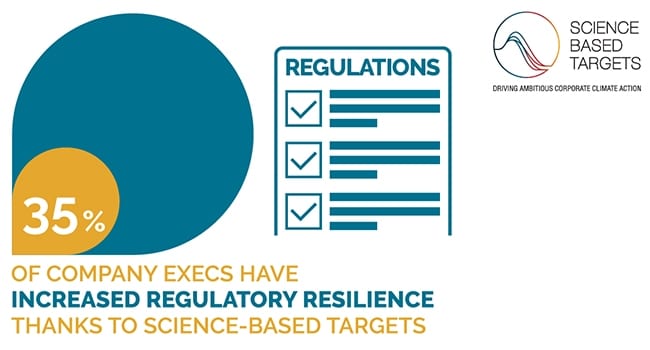
Increased innovation:
With the transition to a low-carbon economy underway and growing in momentum, companies that are aligning their strategies with this step-change are opening themselves up to a world of opportunity.
Almost two-thirds (63%) of respondents say setting a science-based target is already driving innovation within their company, while over 50% say they expect at least half of their products and services to be low-carbon by 2030.
Take multi-nation technology company Sony. Their science-based target helped them drive the development of new products for use in their manufacturing process, including a new plastic, SORPLAS, made up of 99% recycled material, which helps to reduce CO2 emissions by nearly 80% during manufacture.
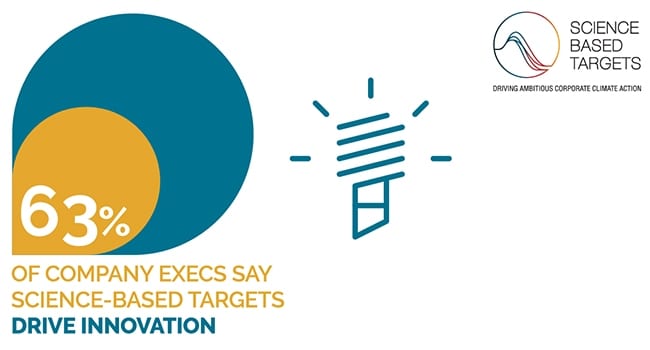
Bottom line savings:
While a frequently heard argument is that greening business models comes at too high a cost, those companies looking to set science-based targets are proving this wrong. Almost a third (29%) are already seeing bottom-line savings thanks to their ambitious commitment.
By setting such a target companies are ensuring their operations remain lean and efficient, and are building resilience against a future where resources – particularly those derived from fossil fuels – will become increasingly scarce and expensive.
The rising prices of raw materials can mean the difference between profit and loss, and SBT companies are showing they are on the right side of this equation.
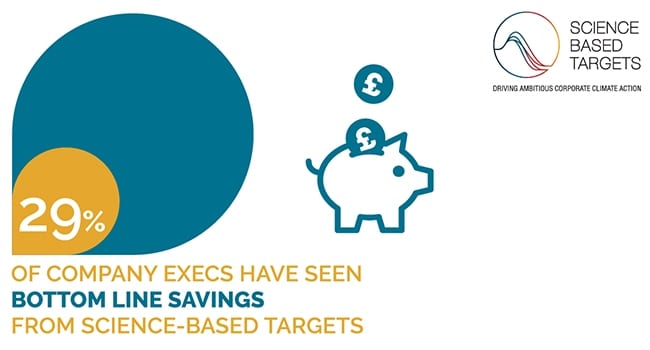
Competitive edge:
As the trail-blazers of the low-carbon transition, it is of little surprise that over half (55%) of those surveyed said committing to the Science Based Targets initiative gave them a competitive advantage.
With increased innovation, reduced uncertainty, strengthened investor confidence and improved profitability, it is those companies that are getting ahead of the curve that will succeed in the low carbon economy.
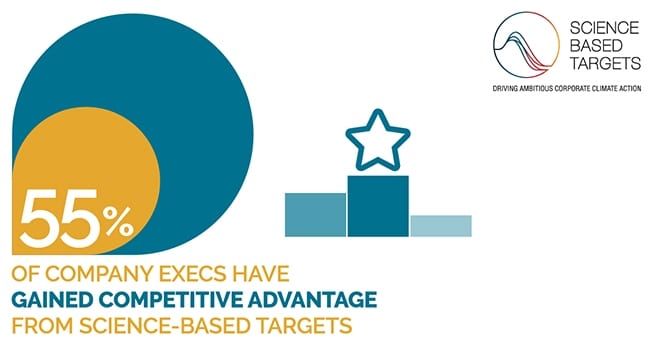
Find out more about setting a science-based target today >>
*A 2018 YouGov survey of 185 company executives from SBTi committed businesses.
Latest News
View News


